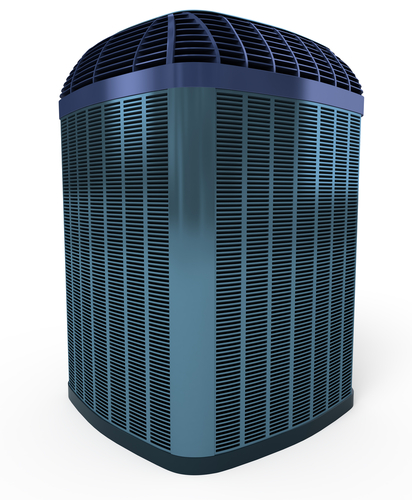How do I determine the right size of my new air conditioning unit?
 The general rule of thumb that used to be followed when advising Rosie on the House listeners about how big a replacement air conditioning unit should be was 400 square feet per ton.
The general rule of thumb that used to be followed when advising Rosie on the House listeners about how big a replacement air conditioning unit should be was 400 square feet per ton.
But that rule is out of date. Due to the increased energy efficiency in homes today, it is no longer possible to base the size of your air conditioner solely on the size of your home, and therefore there is no good rule of thumb; but there are some guidelines.
When it comes to air conditioning, it’s now actually better to err on the side of smaller. A unit that’s too big for the home won’t run long enough to wring out the humidity. Instead, it will cool your home too quickly, and then cut itself off before it has time to deal with the humidity. High humidity indoors can lead to problems, including but not limited to, your discomfort and mold growth. Also, an air conditioning unit that cuts on and off every few minutes because it cools the house so quickly will use more energy than one that stays on long enough to do its job with the humidity.
That said, you don’t want to buy a unit that’s too small, either. An undersized unit will run all the time without ever making your home as cool as you’d like it to be.
An air conditioning unit that’s just the right size for your home will run long enough to bring your home to the temperature you like, and it will cycle the moisture out of the air and give you the most comfort, and energy efficiency.
To figure out how big your new air conditioning unit should be, consult with an air conditioning professional who will use a computer to do a “load calculation” for your home. That calculation will take into consideration not only the size of your home, but which products the builder used to build it. The calculation will consider how thick your wall and ceiling insulation is, how many windows and doors your home has, and whether the glass in them is single-, double- or triple-pane. Which direction the windows face, and whether your windows, doors and other openings in the home (like entry points for electric and cable wires, for instance) are sealed up tight will make a difference as well.
It is also important to consider how cool your home has to be in order for you and your family to feel comfortable. There's really no rule of thumb about that, comfort is a matter of personal preference.
###
